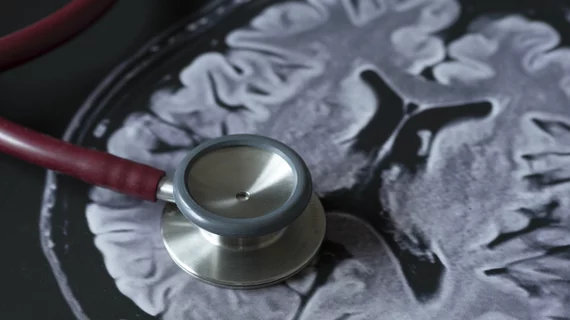Nation’s largest health system to cover new Alzheimer’s drug, with implications for radiology
The largest integrated healthcare system in the U.S. is covering a new drug for treating Alzheimer’s, with implications for radiology.
Drugmaker Eisai announced the news Monday after the Veterans Health Administration agreed to approve use of Leqembi in patients with early stages of the disease. Those eligible must undergo a brain MRI within one year prior to starting treatment and additional scans before the fifth, seventh and 14th infusions.
Such scans are needed in the early stages of treatment to allow providers to assess any amyloid-related imaging abnormalities, or “ARIA,” the Tokyo-based company noted.
“Enhanced clinical vigilance for ARIA is recommended during the first 14 weeks of treatment with Leqembi,” Eisai said March 13. “If a patient experiences symptoms suggestive of ARIA, clinical evaluation should be performed, including MRI if indicated. If ARIA is observed on MRI, careful clinical evaluation should be performed prior to continuing treatment.”
The VA’s decision comes two months after the U.S. Food and Drug Administration OK’d the new drug via its accelerated approval pathway. Medicare, meanwhile, has declined to cover the treatment at this stage, except for in clinical trials or CMS-approved comparative studies.
It’s unclear how many U.S. veterans are diagnosed with early stages of the disease. But upward of 90% who meet the criteria will be eligible for treatment, a Eisai spokesperson told Axios. The largest integrated system in the country, the VA provides care across nearly 1,300 facilities, including 171 medical centers and 1,113 outpatient sites of care.
Leqembi is the second Alzheimer’s drug to receive the U.S. FDA’s blessing following the controversial approval of Aduhelm in 2021. Radiology providers said at the time that they expected to see a potential surge in MR imaging volumes, needed to assess patients eligible for the drug. However, sales of Biogen’s drug fell short of expectations following that prediction, with some providers hesitant to prescribe it.

